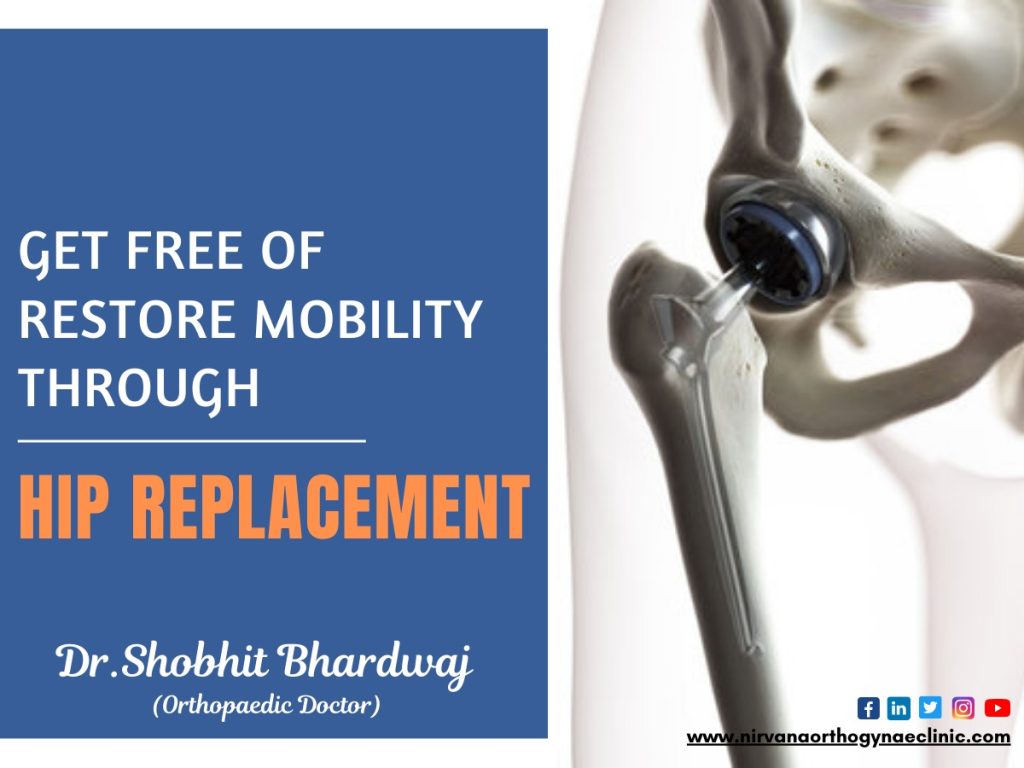Hip arthroplasty, another name for total hip replacement, is a surgical operation that replaces a diseased or injured hip joint with an artificial joint known as a prosthesis. This procedure is usually carried out for patients with diseases including osteoarthritis, rheumatoid arthritis, or hip fractures to reduce pain, increase mobility, and improve overall quality of life. A metal or ceramic ball replaces the femoral head in the prosthesis, and a plastic or metal socket replaces the hip socket.
According to the Best Orthopedic Surgeon in Noida,Dr. Shobhit Bhardwaj Many people have benefited from total hip replacement, a very successful treatment that has a high success rate and has helped many restore function and lessen hip discomfort. Physical therapy and post-surgery rehabilitation are crucial for a full recovery.
Why it’s done
The following diseases have the potential to harm the hip joint and occasionally necessitate hip replacement surgery:
Osteoarthritis: sometimes referred to as wear-and-tear arthritis, is characterized by destruction to the smooth cartilage that covers the ends of bones and facilitates fluid joint motion.
Rheumatoid arthritis: which is brought on by an overactive immune system, causes an inflammation that can break down cartilage and sometimes even the underlying bone, causing joints to become damaged and malformed.
Osteonecrosis: The bone may collapse and distort if there is insufficient blood flow to the ball part of the hip joint, which might happen from a fracture or dislocation.
Risks
Following hip replacement surgery, there may be several risks.
Clots. After surgery, clots may develop in the veins of the legs. This might be harmful as a piece of the clot could break off and go to the lung, the heart, or, in extreme circumstances, the brain. Blood-thinning medications can reduce this risk.
Infection. Both the incision site and the deeper tissue close to the replacement hip may get infected. Antibiotics are used to treat most infections, although surgery to replace the artificial components may be necessary if the infection is severe close to the replacement hip.
Injury. Healthy hip joint components can break during surgery. Larger fractures may require stabilization with wires, screws, a metal plate, or bone transplants. Occasionally, the fractures are little enough to heal on their own.
Dislocation. Particularly in the initial few months following surgery, certain postures may result in the ball of the replacement joint coming out of the socket. In case of a dislocation, a brace might help to preserve the hip’s correct alignment. If the hip continues to dislocate, surgery may be necessary to stabilize it.
Loosing up. Hip discomfort may result from the replacement joint not becoming firmly bonded to the bone or from it becoming loose over time, even though this issue is uncommon with more recent implants. The issue may need to be fixed surgically.
Harm to nerves. In rare cases, nerve damage may occur in the vicinity of the implant. Pain, weakness, and numbness can result from nerve injury.
Results
Three months after the treatment, most patients are doing well, however everyone’s recovery from a hip replacement varies. Improvements often continue during the first year after surgery. Improvements often continue during the first year after surgery. If you are Looking for the Best Total Hip Replacement Surgeon in Noida, Contact Us today.

